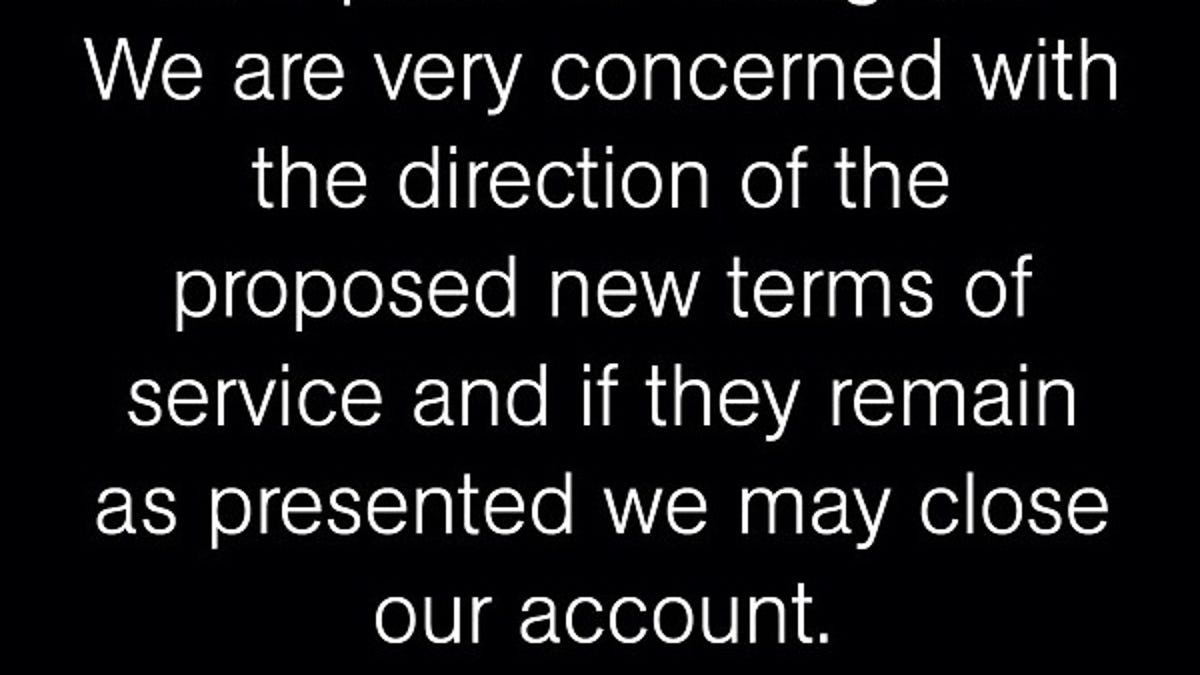National Geographic turns off Instagram over new terms
Magazine known for its high-quality images says it's concerned about new photo ownership policy and may abandon the photo-sharing app entirely.

The backlash over announced changes to Instagram's terms of service has led National Geographic to suspend its posting activity on the photo-sharing app.
The Facebook-owned app ignited a storm of protest with the announcement earlier this week that it was claiming perpetual rights to sell users' photographs without payment or notification. Under the new policy, Facebook claimed the perpetual right to license all public Instagram photos to companies or any other organization, including for advertising purposes, effectively transforming the Web site into the world's largest stock photo agency.
National Geographic, a magazine long respected for presenting high-quality photographs that are both artistic and journalistic, made the announcement today on its Instagram account. "We are very concerned with the direction of the proposed new terms of service and if they remain as presented we may close our account," the post reads.
Recent comments by Instagram suggest such action may not be necessary. The app maker apologized to its users today, saying it will "remove" language from its legal terms that would have let it sell users' photos or use them in advertisements.
In a blog post this afternoon, Chief Executive Kevin Systrom said it's "our mistake that this language is confusing" and that the company is "working on updated language."
"Since making these changes, we've heard loud and clear that many users are confused and upset about what the changes mean," he wrote.

